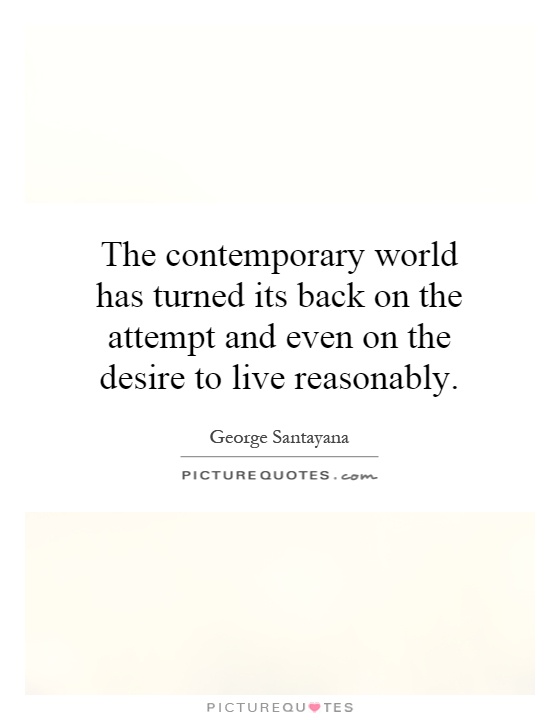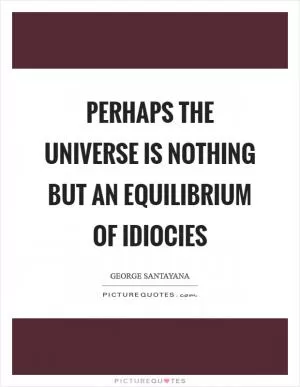The contemporary world has turned its back on the attempt and even on the desire to live reasonably

The contemporary world has turned its back on the attempt and even on the desire to live reasonably
George Santayana, a renowned philosopher and essayist, once remarked that "The contemporary world has turned its back on the attempt and even on the desire to live reasonably." This statement, made in the early 20th century, still holds true in today's society. The modern world is characterized by a fast-paced, consumer-driven culture that often prioritizes instant gratification over thoughtful consideration and rational decision-making.In Santayana's view, living reasonably means making choices based on logic, evidence, and sound judgment rather than succumbing to impulses or emotions. It involves weighing the consequences of our actions and striving for a balanced and harmonious existence. However, in today's world, reason often takes a backseat to convenience, materialism, and self-indulgence.
One of the key factors contributing to this shift away from reason is the rise of technology and social media. With the constant bombardment of information and distractions, many people find it difficult to focus on what truly matters and make informed decisions. Instead, they are influenced by trends, peer pressure, and the desire to fit in with the crowd.
Moreover, the emphasis on consumerism and material wealth has led many individuals to prioritize their own desires and pleasures above all else. In a society that values instant gratification and constant stimulation, the pursuit of reason and wisdom can seem outdated and irrelevant.
Additionally, the erosion of traditional values and moral principles has further contributed to the decline of reason in the contemporary world. With the breakdown of social norms and institutions, many people feel adrift and disconnected from a sense of purpose or meaning. This lack of grounding can lead to impulsive behavior and a disregard for the consequences of one's actions.












 Friendship Quotes
Friendship Quotes Love Quotes
Love Quotes Life Quotes
Life Quotes Funny Quotes
Funny Quotes Motivational Quotes
Motivational Quotes Inspirational Quotes
Inspirational Quotes